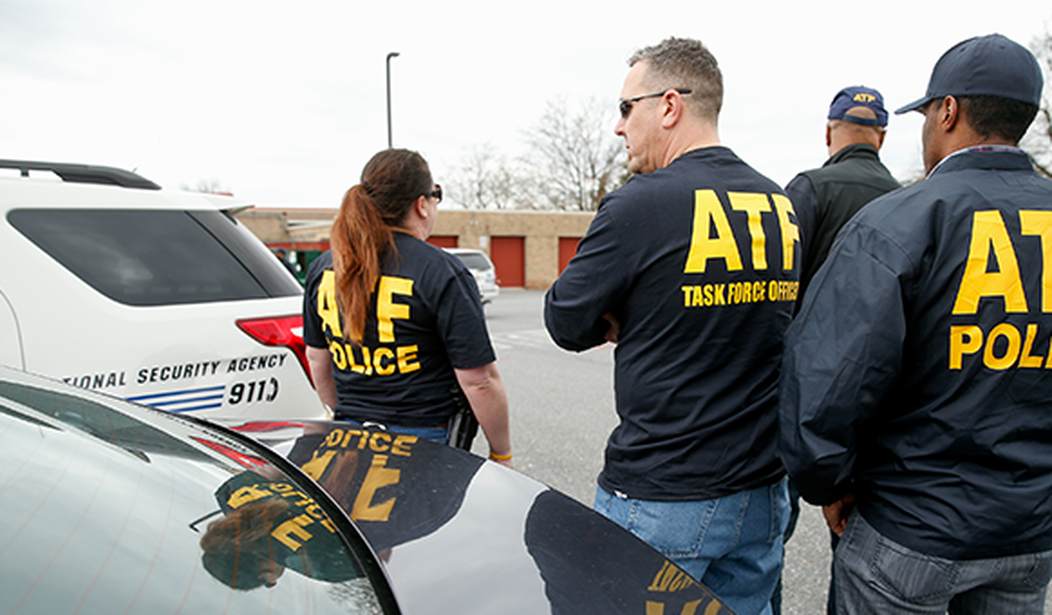The attorney representing the family of Bryan Malinowski, who was shot and killed during an ATF raid on his home over suspicions that he was dealing guns without a federal firearms license, claims the ATF's new rule on who is "engaged in the business" could have prevented the raid from taking place.
"In my mind it certainly could've prevented this," Bud Cummins said Thursday of the March 19 raid at Malinowski's Little Rock home by agents of the Bureau of Alcohol, Tobacco, Firearms and Explosives, in which Malinowski was mortally wounded.
Malinowski, 53, had been under investigation by ATF over his practice of selling firearms as an unlicensed dealer at gun shows, Cummins said, something Malinowski had not been aware of.
"Had someone brought it to his attention, he would've done anything he could've to comply with the rule," Cummins said of Malinowski, the executive director of the Bill and Hillary Clinton National Airport/Adams Field.
I have a lot of questions about the circumstances of the ATF's raid on Malinowski's home, but let's be clear. The ATF's new rule re-defining who is "engaged in the business" is a broad (and vague) expansion of the earlier definition, but there's been some guidance on who, exactly, needs an FFL for decades. If anything, the new rule, which the ATF says could encompass even a single firearm made available for sale for a profit, is likely to lead to more raids like the one on Malinowski's home.
Cummins thinks that the rule still isn't entirely clear as it still does not include a "bright-line test," or an objective, clearly defined standard. However, he believes it offers more insight into what is and is not allowed under federal law.
According to Cummins, it seems like the ATF was trying to enforce the new definition before it was enacted when they raided Malinowski's home.
The rule was first proposed in August after the passage of the Bipartisan Safer Communities Act, a measure meant to curtail gun violence.
"Based on the time I've had to look at it, I concluded that they're trying to expand the definition of a person engaged in the business of selling firearms to squeeze out private sellers and effectively close the gun show loophole," said Cummins, a former U.S. Attorney for the Eastern District of Arkansas.
Once again, there is no "gun show loophole." If you're "engaged in the business" of dealing guns, you're supposed to have an FFL, no matter if you're operating from a brick-and-mortar retail location, your home, or a table at a gun show. I suspect that Cummings is right, however, that the new rule is meant to put the squeeze on private gun owners who make occasional sales from their personal collection. Gun control advocates like Bloomberg Opinion columnist Francis Wilkinson are lavishing praise on Joe Biden for "closing a sacred portal into American gun culture" because they know the impact that the rule is going to have on private, person-to-person sales.
Was the ATF trying to enforce the new rule before it was enacted, as Cummings claims? I doubt we'll ever get any ATF official to admit to something like that, but in all honestly even the definition of "engaged in the business" that Congress adopted as part of the Firearms Owner Protection Act in the 1980s was probably sufficient to pursue an investigation into Malinowski. That definition stated that those selling firearms for livelihood and profit were supposed to obtain an FFL, and the ATF alleges that the Little Rock airport executive purchased and resold more than 150 firearms between May of 2021 and March of this year, including some resales that took place within 24 hours of his purchase.
Should the ATF have reached out to Malinowski to inform him that he was on their radar and he needed to obtain a federal firearms license if he wanted to comply with the law? The agency certainly wasn't obliged to do that, but then, they weren't obliged to conduct an armed raid on his home either; especially in the early morning hours when Malinowski had reason to believe that the strangers bursting into his home were armed criminals, not law enforcement.
Cummings contends that he's seen nothing to indicate the agents announced themselves before breaking through Malinowski's front door. The airport executive, who was armed, was shot and killed by agents, one of whom was also wounded in the foot during the raid. The attorney recently released doorbell camera video showing one of the agents covering the camera with tape just before the front door was breached, but so far we've seen nothing released by either Cummings or the local law enforcement agency investigating the raid that shows the agents announcing their presence before entering the home.
Maybe Cummings is right when he suggests that Malinowski would have applied for an FFL if the ATF's new rules had been officially announced while agents were investigating him. We'll never know whether that was the case. But I'm deeply concerned that the agency's new rule will lead to more of these kinds of raids being conducted against individuals who are suspected of what is essentially a paperwork crime, including those who may not have even sold a gun, but simply offered one for sale.









Join the conversation as a VIP Member